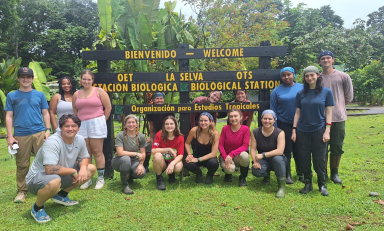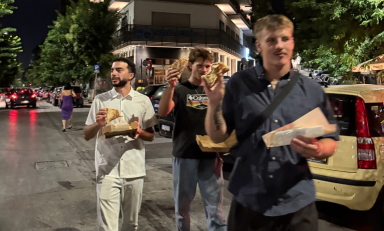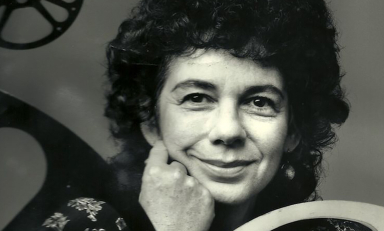Emerita Adjunct Professor Betsy Perry, who taught at Oxy for 19 years, published extensively on Early Modern Spain and advocated for the equal treatment of all academics
Mary Elizabeth “Betsy” Perry, emerita adjunct professor of history at Occidental, died June 30, 2025, in Altadena. She was 87.
A native of Turlock, Calif., Betsy graduated from Washington State University as class valedictorian in 1959, with what was at the time the highest GPA in the university’s history—a feat aided by several A-pluses. (A general studies major, she used shorthand to take notes during classes, and then typed her notes afterward.)
After a year as a flight attendant based in Seattle and a student group trip to Europe, Betsy enrolled at Stanford University, where she completed a one-year master’s degree in history. There she met her future husband, law student Ralph Perry, and the couple were married in September 1961. With their firstborn, Katie, the family moved to Los Angeles upon Ralph's graduation in 1963. Son Dan was born in 1964, and in 1967 the family moved to Pasadena, which would be their home for the next 49 years.
In the 1970s, Betsy returned to graduate school at UCLA, to complete a doctorate in history. Her primary area of research was Early Modern Spain, and she took particular interest in uncovering and interpreting the histories of women, the poor, and other marginalized people. In 1975-76, she received a Fulbright Scholarship to do research in Seville, Spain, for her doctoral thesis, and she took Katie and Dan (then 13 and 11, respectively) with her.
Betsy's doctoral thesis became her first book, Crime and Society in Early Modern Seville (1980). All totaled, she published six books, most notably Gender and Disorder in Early Modern Seville (1990) and The Handless Maiden: Moriscos and the Politics of Religion in Early Modern Spain (2005), both of which were published by Princeton University Press.
During her 19 years as an adjunct professor at Oxy, Betsy loved the opportunity to design new courses that would be most impactful for students. In the wake of 9/11, she expanded the focus of history courses to be more inclusive of other identities and backgrounds. She designed the course Medieval Mediterranean—World Conflict in Coexistence, which allowed students to explore the impact of this period in history and our world today. She loved the opportunity to be involved with collaborative interdisciplinary teaching and treasured mutual learning from students and faculty alike.
In addition to Occidental, Betsy taught history at UCLA, USC, and Cal State LA. For decades she was a research associate with the UCLA Center for Medieval and Renaissance Studies, and was active in the Western Association of Women Historians, including two years as president. She also served on the council of the American Historical Association, and in her 1995 AHA essay “The Invisible Majority,” she advocated for the end of the two-tiered faculty system, urging equal pay, resources, and respect for adjunct faculty.
As a member of All Saints Episcopal in Pasadena, Betsy co-founded and led a feminist study group, served on the Vestry, and participated in several interfaith initiatives. She also loved dogs, birdsong, music, nature, children, languages, and travel. At Ralph’s suggestion, the couple established an endowed scholarship at Occidental following Betsy’s retirement to honor her years of teaching. “History is not dead,” she said in 2016, “and many of our legacies for the next generation can help in life and getting through college.”
In addition to her husband and her children, Betsy is survived by six grandchildren, Alex, Diana, Jace, Maria, Claire, and JP; one great grandchild, Beatrice; and several nieces and nephews. A funeral and memorlal service will be held at All Saints Church in Pasadena on August 23 at 2 p.m.



